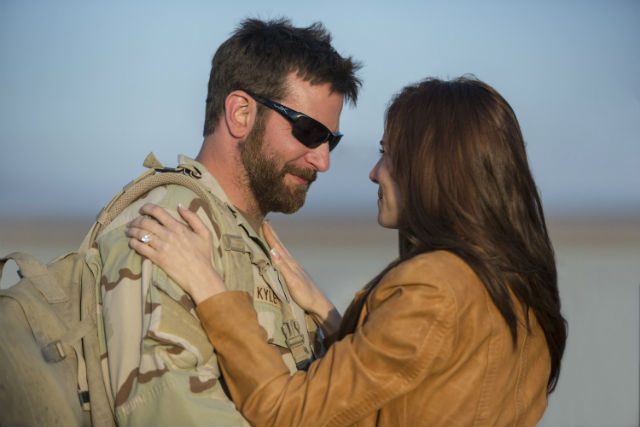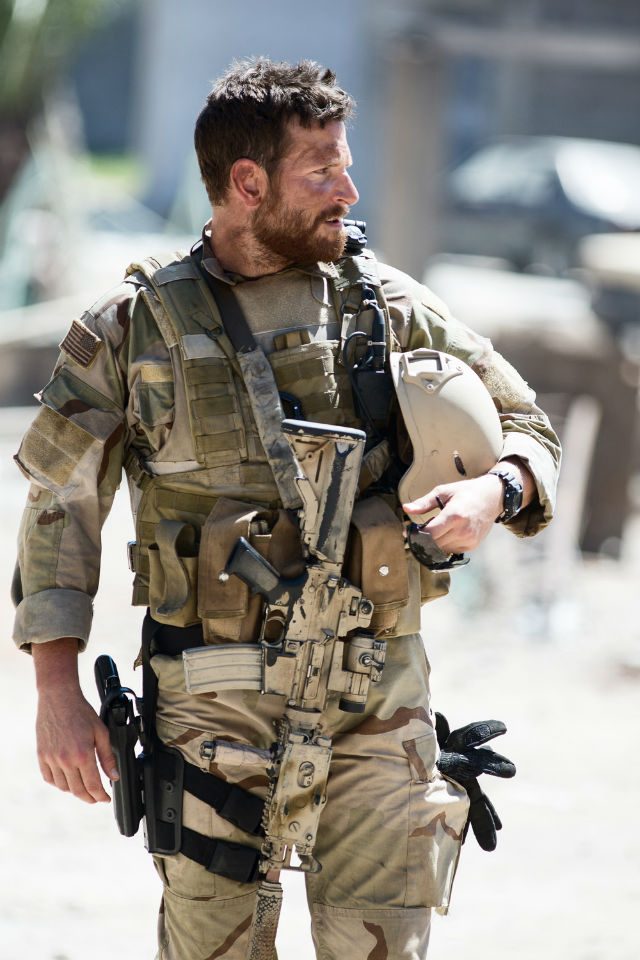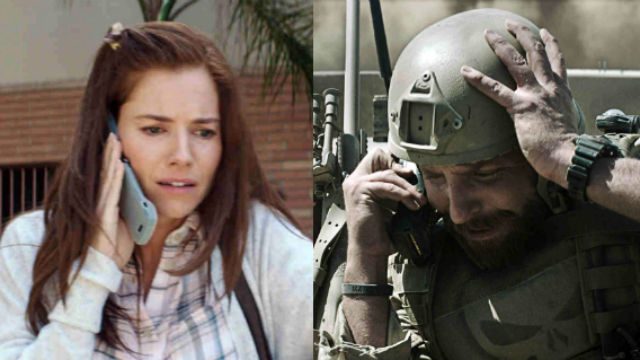SUMMARY
This is AI generated summarization, which may have errors. For context, always refer to the full article.

Clint Eastwood’s American Sniper is not great cinema, nowhere near D.W. Griffith’s The Birth of the Nation (1915), whose ambition and magnitude seemed to surpass its polarizing depiction of racial intolerance. (READ: ‘American Sniper’ blasts competition at North American box office)
It is as elegantly composed as any of Eastwood’s recent films, differentiated only by how un-romanticized death and violence are portrayed here. Its story of legendary sniper Chris Kyle (Bradley Cooper) is told episodically, starting with Kyle’s experience growing up in a Bible-reciting, gun-wielding Texas family, continuing towards his famed 4 tours in the Iraq War, and leading up to his discharge from the military and difficult reassimilation into society.
The film is blunt in its method of storytelling, excising unnecessary details for sequences that mainly propel its thesis. Despite such an absence of subtlety, the film still strangely confuses in all its intended ambivalence towards America at war, leading towards discussions, critiques, and arguments that go way beyond its actual merits as a film.
A film of the times
All the talk on American Sniper is of course due to the very divisive nature of America’s protracted war on terror. The film can only partake of the nature of its character, a man born and raised under an ideology of American patriotism.

The film’s politics, its many racial slurs and its black and white portrayal of soldiers and civilians from the other side of the fence are all due to the fact that this is the outside world from the perspective of its main character.
The film, from its lack of any females aside from Kyle’s wife (Sienna Miller) to Kyle’s gnawing obsession on finishing off a rival sniper, sums up a world view that seems curiously not unlike that of America’s.
This is perhaps why the film has garnered staunch defenders and detractors. American Sniper is either a film that presents America’s sacrifices to protect its own citizenry or expose a nation’s faults.
On one hand, it establishes Kyle as a tragic hero whose unwavering loyalty to duty is remarkable. On the other hand, it lays down America whose confused position in the world arena has caused great pain and damage both outside and inside the nation. Its depiction of both war-torn Iraq and Kyle’s family in rural America is so replete with sadness and tension, there is almost no room for comfort.
The American hero
Kyle, interestingly, is such an uncomplicated character. His ideals and decisions are predictable, and his penultimate tragedy comes off with an awkward tinge of irony.
He resembles a machine, gifted by God and country with the necessary tools and skills, to accomplish one role in life. All other things, like his growing family back home and the fading immediacy of America’s stay in Iraq, are but noise to his solitary mission.

Cooper, who transformed into a deadlifting hulk to both look like Kyle and to suit Eastwood’s vision of what a contemporary American hero would look like, portrays Kyle as a man who constantly shields himself from the sentimentality that could expose his weakness. Cooper’s eyes reveal the humanity that war has taken away from him.
That’s not entertainment
The real danger of American Sniper is that while it proposes a half-hearted cautionary stance against war, it still feels like it is molded for entertainment. Kyle’s 4 tours are grounded on a narrative that seems borrowed from the Westerns that Eastwood used to star in.

Kyle’s previously patriotic intentions to join the war have been warped to rid his world of a rival and to exact revenge for a fallen comrade. Half of the film follows this thread, to the detriment of treating its characters as suffering and noble human beings.
Death and violence, as mentioned previously, are abundant, perhaps to create a certain semblance of the desensitization that Kyle has experienced. However, there is no gravity to the desensitization. There is no moral ground to it. The audience, in turn, treats each kill, each act of violence, as mere spectacle.

American Sniper, in a way, deserves all the attention it has been garnering. Again, this is not a monumental film that will be remembered and studied in the future. It is what it is – a film whose very own confusion about its position about war, about its main character, about America, has elicited various reactions. – Rappler.com
 Francis Joseph Cruz litigates for a living and writes about cinema for fun. The first Filipino movie he saw in the theaters was Carlo J. Caparas’ ‘Tirad Pass.’ Since then, he’s been on a mission to find better memories with Philippine cinema. Profile photo by Fatcat Studios
Francis Joseph Cruz litigates for a living and writes about cinema for fun. The first Filipino movie he saw in the theaters was Carlo J. Caparas’ ‘Tirad Pass.’ Since then, he’s been on a mission to find better memories with Philippine cinema. Profile photo by Fatcat Studios
Add a comment
How does this make you feel?
There are no comments yet. Add your comment to start the conversation.